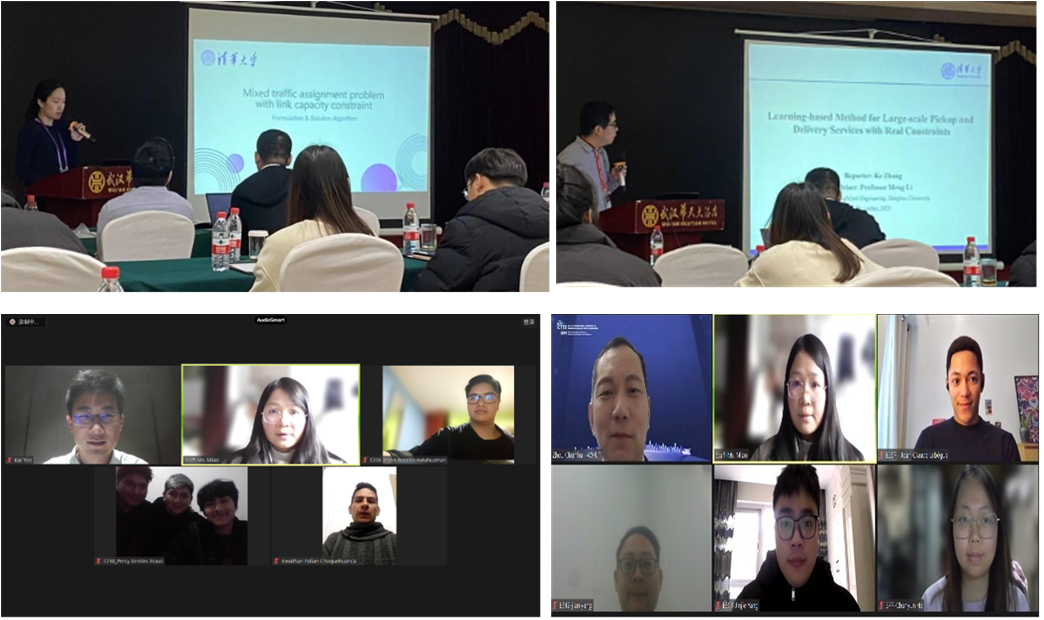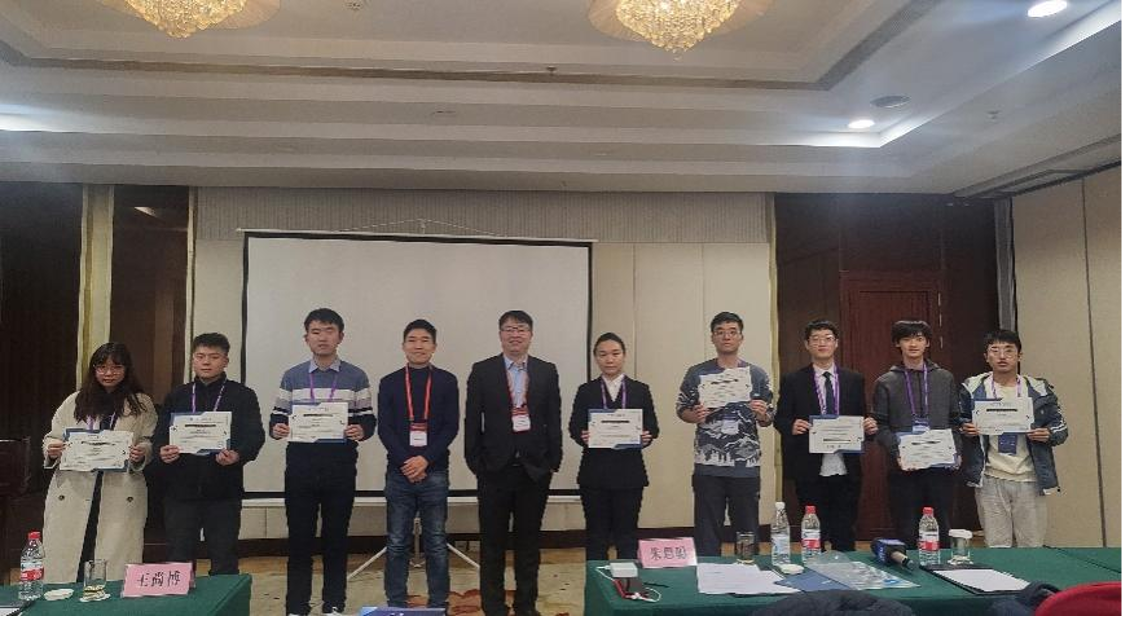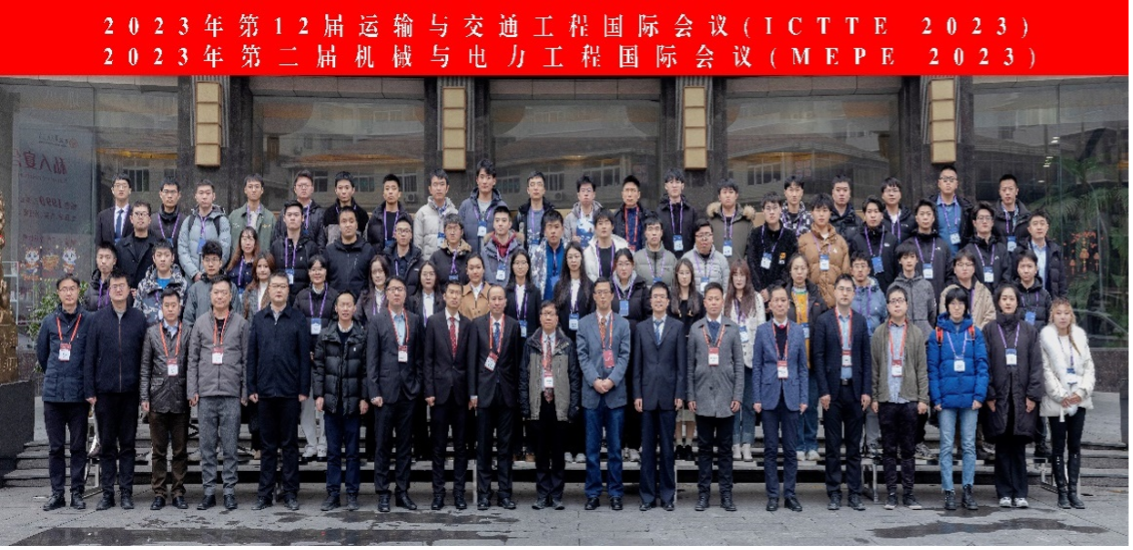On December 30, 2023, the 12th International Conference on Transportation and Traffic Engineering (ICTTE 2023), hosted by Wuhan University of Technology and organized by the College of Navigation, was held at Wuhan Huatian Hotel. The conference was held concurrently with the 2nd International Conference on Mechanical Engineering and Power Engineering (MEPE 2023) in a hybrid format (online and offline). Vice President Zhang Di attended the event, with Professor Liu Kezhong (Dean of the College of Navigation) serving as Conference Chair. Professor Namkyun Im from Mokpo National Maritime University (South Korea), Vice Deans Zhang Jinfeng and You Anni of the College of Navigation acted as Co-Chairs, while Professor Ma Yong chaired the Organizing Committee. Professors Zhou Chunhui, Zheng Yuanzhou, and Professor Liu Wei from Hong Kong Polytechnic University served as Co-Organizing Chairs.
At the opening ceremony, Vice President Zhang Di extended a warm welcome to attendees and congratulated the conference’s launch. He emphasized that advancements in autonomous driving, smart highways, and new energy vehicles, driven by next-generation IT, are propelling transportation engineering into an era of digitalization, intelligence, and sustainability. ICTTE 2023 serves as an international platform for fostering scientific collaboration, exploring industry trends, and sharing cutting-edge research. He highlighted Wuhan University of Technology’s long-term commitment to talent cultivation and disciplinary development in construction, transportation, and automotive industries. He encouraged global peers to engage in discussions on current and frontier topics in transportation engineering, collectively contributing to high-quality and sustainable development worldwide.
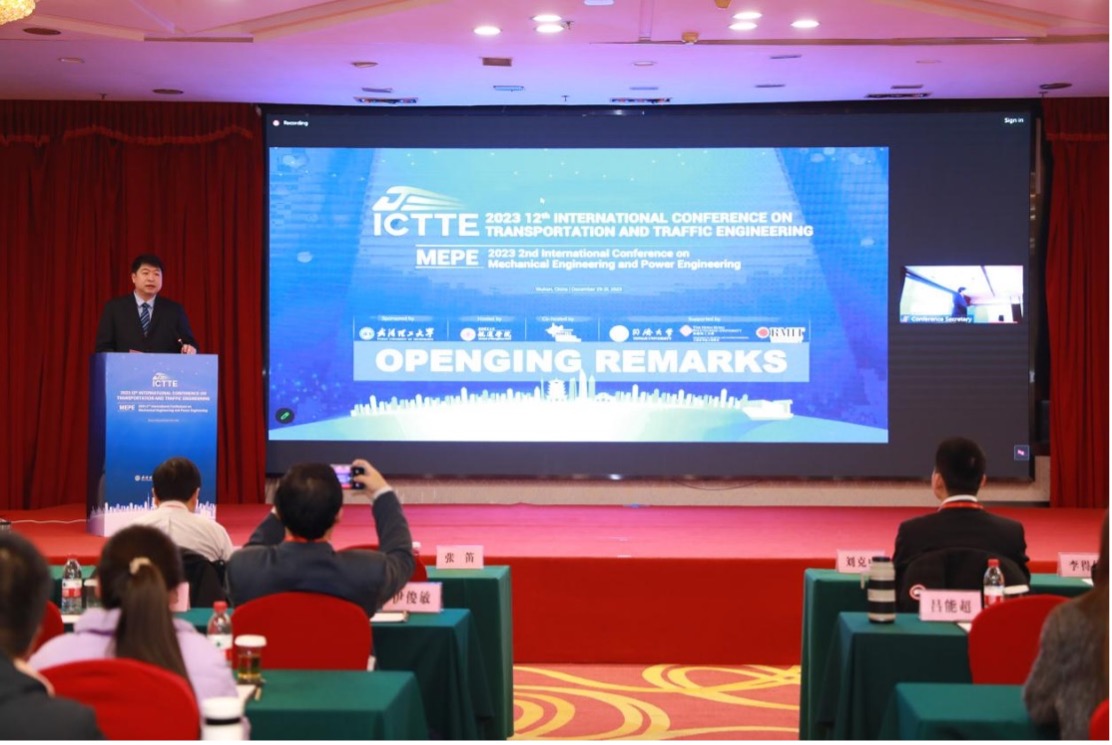
The conference featured keynote speeches by five distinguished scholars: Professor Lu Guangquan (Beijing University of Aeronautics and Astronautics): National Leading Talent in Science and Technology, Ministry of Transport’s Young Scientific Innovation Leader, and Principal Investigator of National Key R&D Programs; Professor Wei Fan (University of North Carolina at Charlotte): UNC Charlotte Distinguished Scholar; Professor Li Dewei (Beijing Jiaotong University): Chair of the International Union of Railways (UIC) University League, Asia-Pacific Affairs Committee Member, and ICTTE Member; Professor Namkyun Im (Mokpo National Maritime University); Professor Ma Yong (Wuhan University of Technology): Recipient of the National Natural Science Foundation’s Excellent Young Scientist Fund. Their presentations, titled “A General Driving Behavior Model Based on Risk Homeostasis”, “Equity-Based Traffic Signal Control under Connected Vehicle Environment: Deep Reinforcement Learning Approach”, “Recent Advances towards Intelligent Mobility Service in Railway”, “Introduction of Hydrographic Information (Nautical Charts) Standard Development for MASS in Korea”, and “Intelligent Path Planning for Ocean-going Ship in the Pirate Area Considering the Real Marine Environment”, highlighted cutting-edge advancements in intelligent road systems, urban rail transit control, standardization of autonomous ship hydrographic data in Korea, and transoceanic vessel route planning.
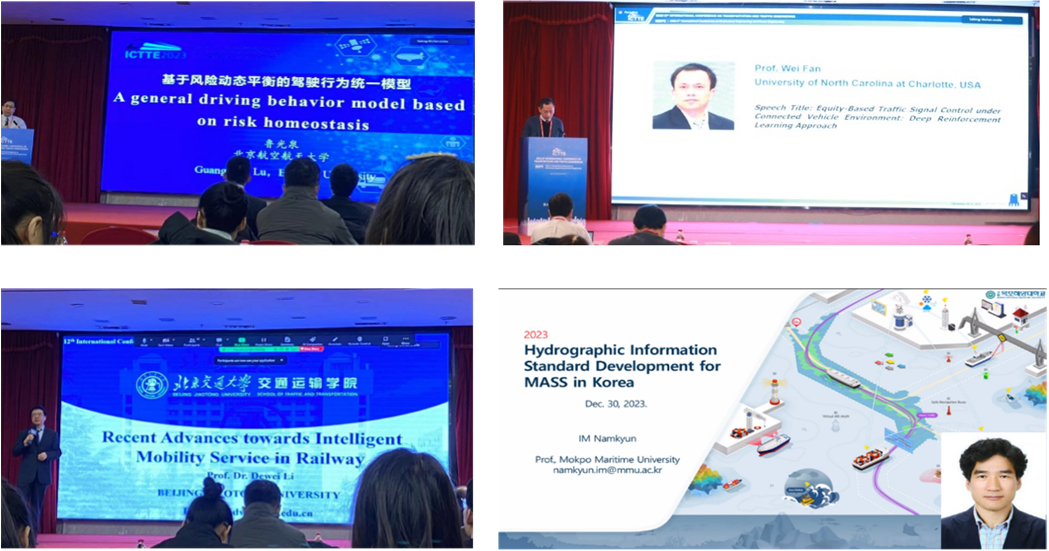
During parallel sessions, scholars from over 40 domestic and international institutions—including Continental University of Peru, Nippon Institute of Technology, Tsinghua University, University of Hong Kong, Tongji University, Dalian Maritime University, Xi’an Jiaotong University, Dalian University of Technology, Beijing Jiaotong University, Southwest Jiaotong University, Xiamen Institute of Technology, Hebei University of Technology, Harbin Institute of Technology, China Academy of Railway Sciences Corporation Limited, and the Second Research Institute of CAAC—delivered 72 academic presentations. Eighteen papers were awarded as Outstanding Contributions.
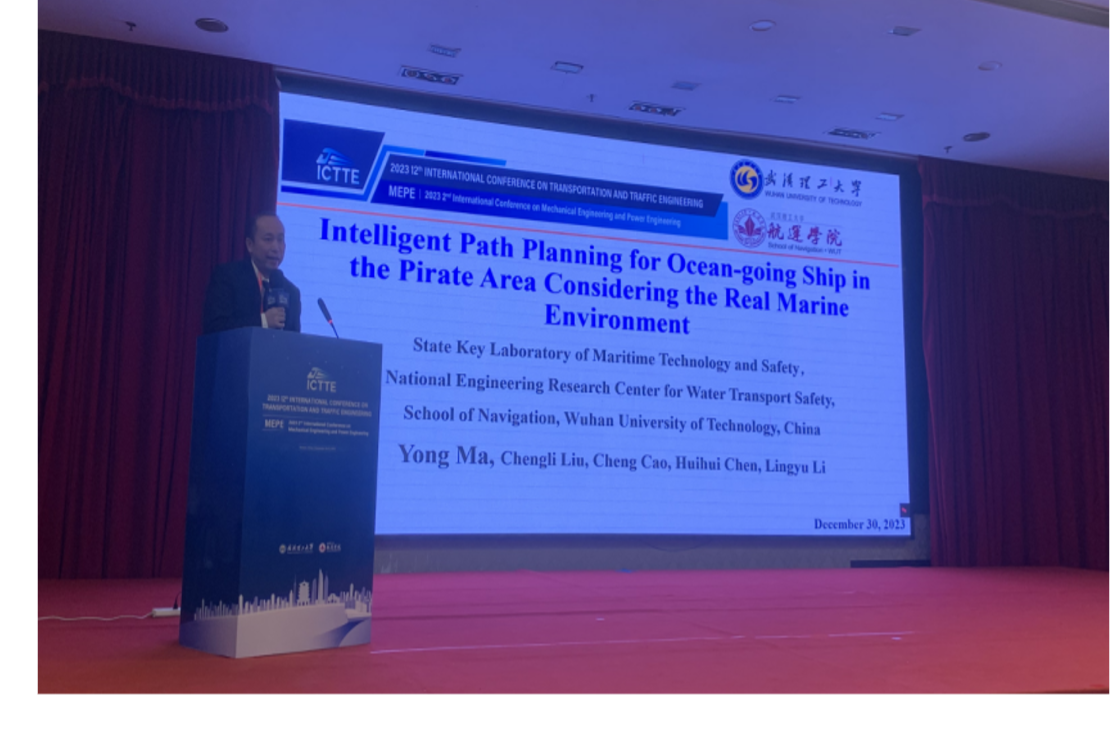
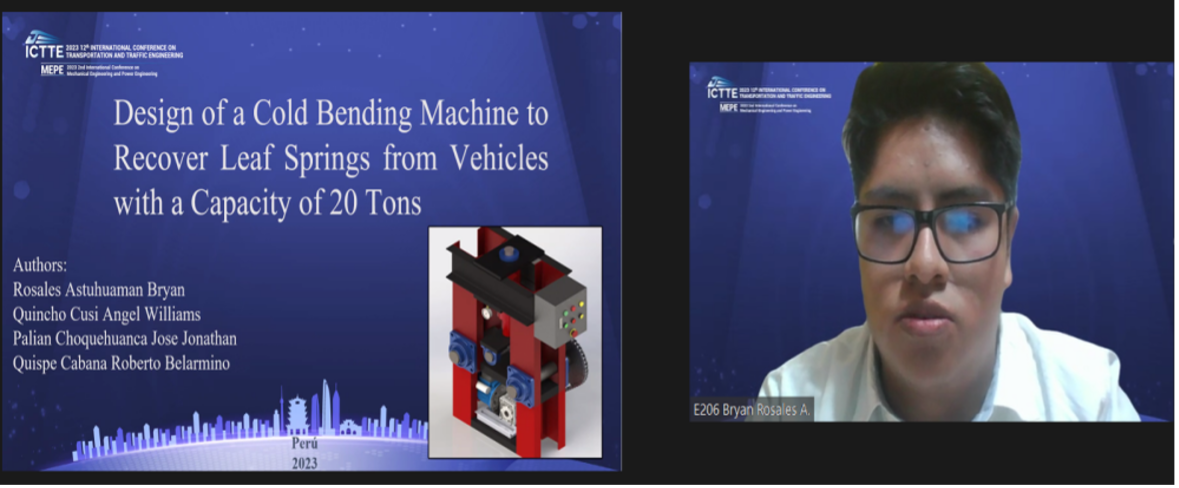
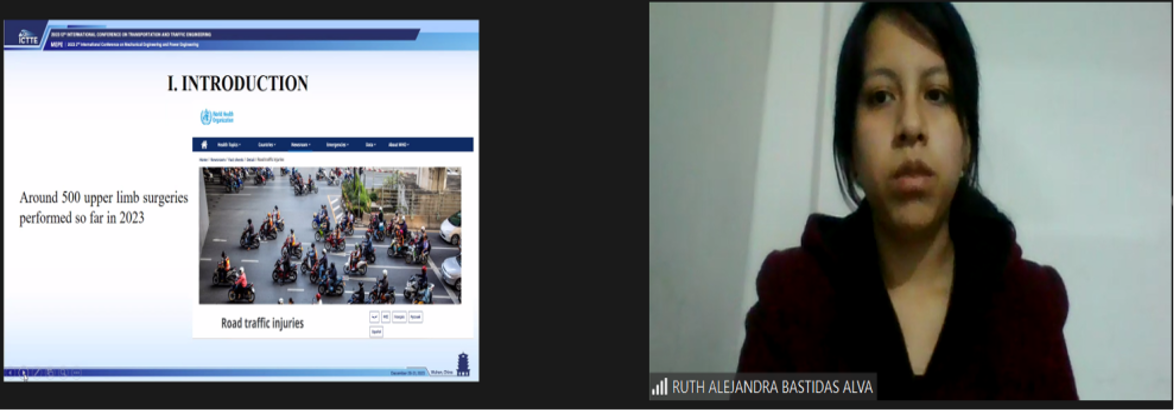
The conference concluded successfully, having facilitated in-depth discussions on critical topics in transportation and traffic engineering, including traffic planning and system optimization, traffic management and IT applications, logistics and socio-economic development, and transportation safety. Over 150 participants attended both online and offline, establishing a high-quality academic exchange platform. With guidance from the university’s International Office, the event strengthened ties between the college’s faculty/students and global experts, enabling engagement with cutting-edge research in intelligent transportation. It also significantly enhanced the international academic influence of the university and the college’s transportation engineering discipline.
